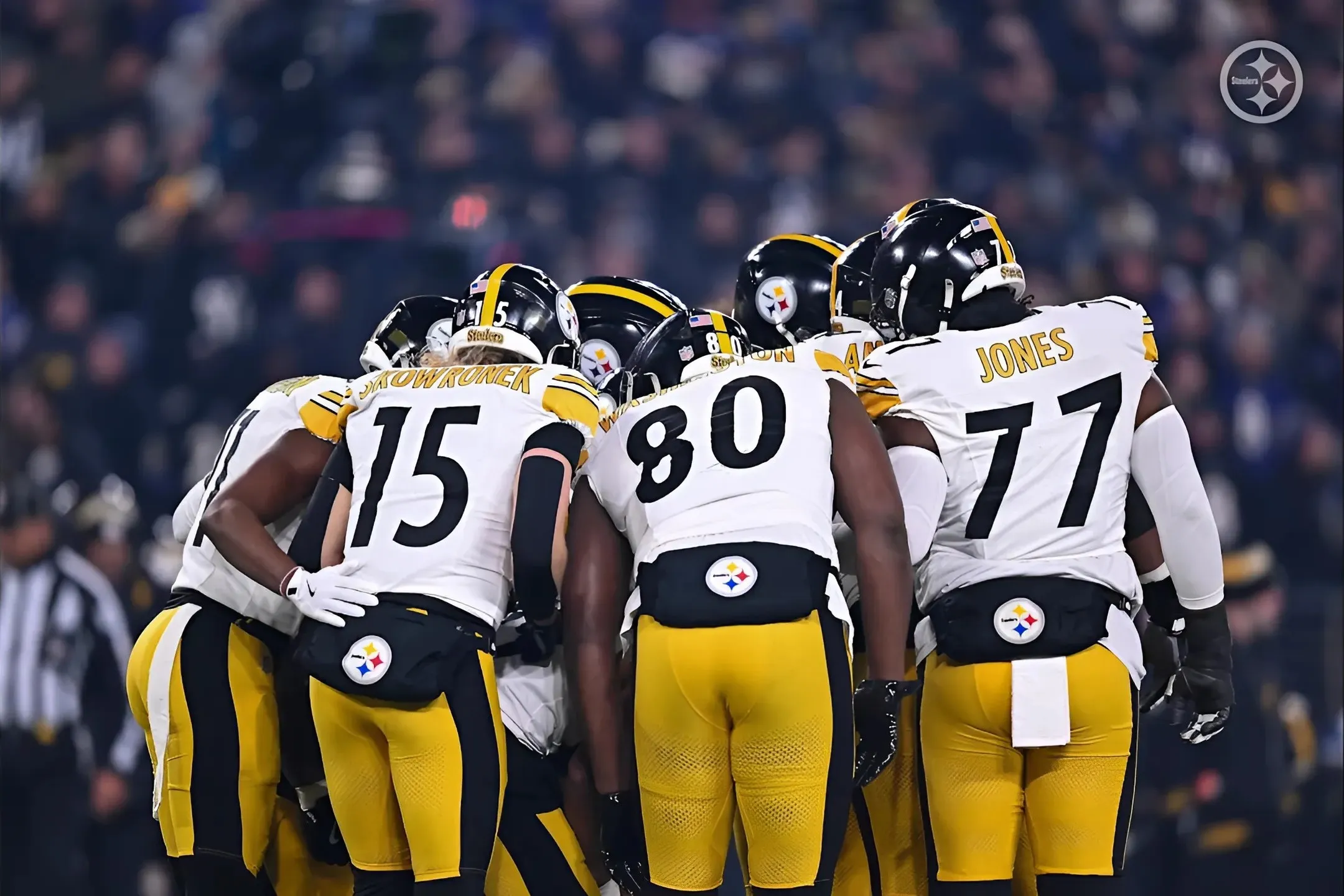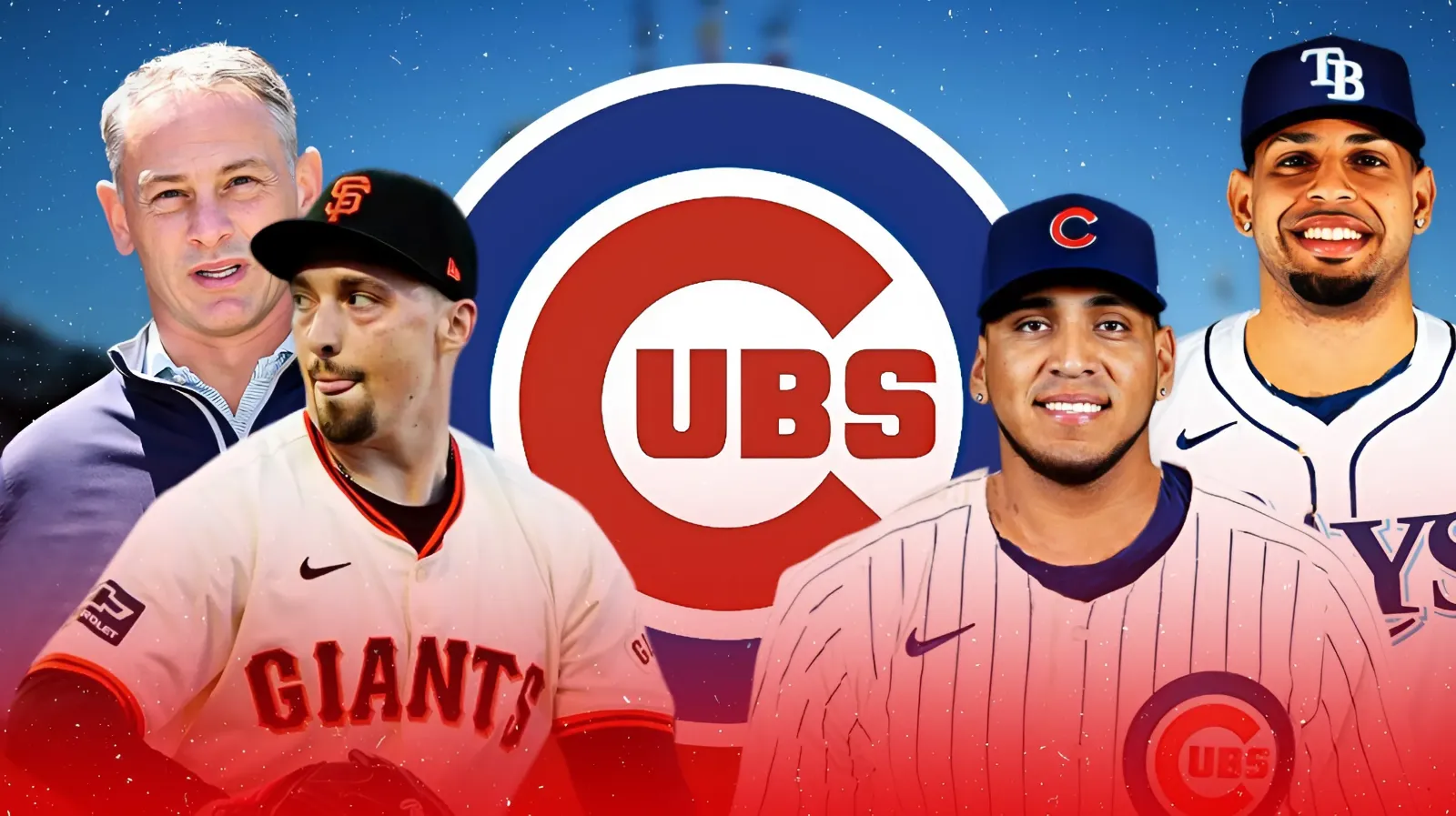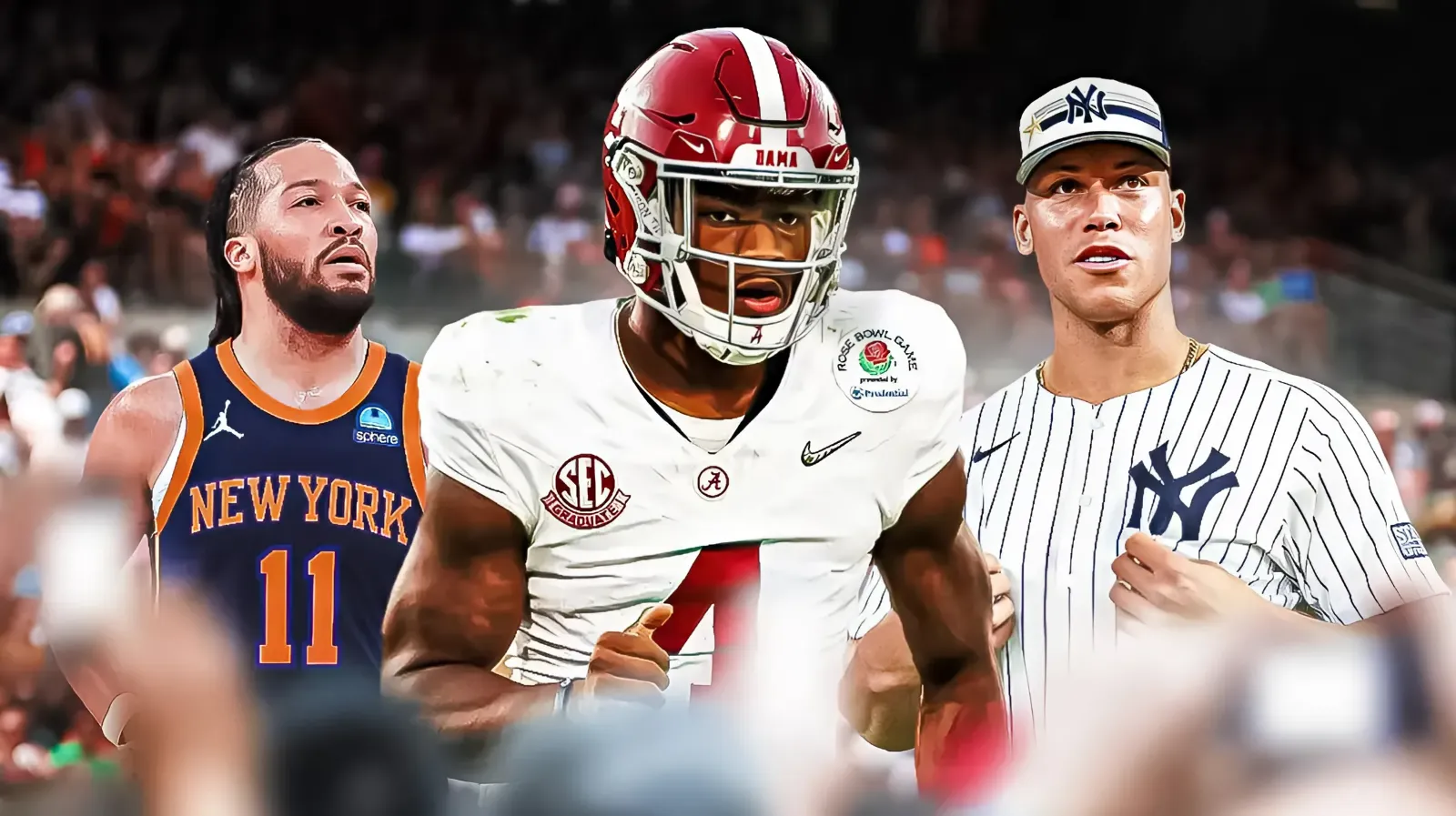Editor's note: The below contains spoilers for Season 1 of The Last of Us.At the heart of HBO’s The Last of Us is the story of Ellie and Joel, portrayed by Bella Ramsey and Pedro Pascal. These two characters have lost everything, but over the course of the series find the light within each other. It ties in closely with the show’s mantra: “When you’re lost in the darkness, look for the light.”

However, despite giving each other something to fight for, their relationship has its flaws, with Joel’s problematic relationship with violence slowly rising to the surface. His determination to protect those he loves begins to negatively influence Ellie, who completely loses her innocence in the process. To get a proper understanding of the flawed nature and repercussions of Joel’s actions, though, we must first look at where his struggles with violence originate from.
Joel Can't Lose a Daughter Again
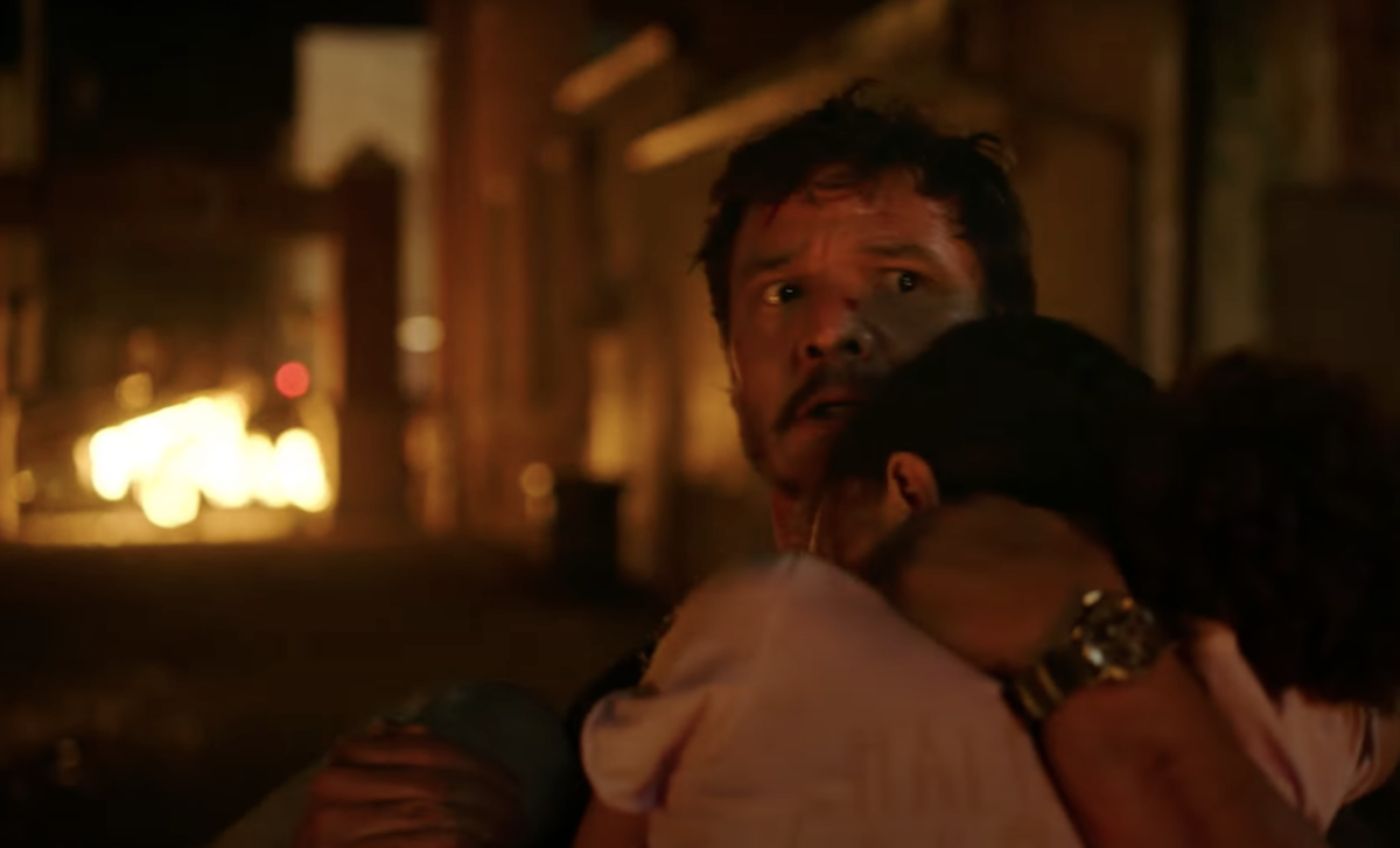
A central theme of The Last of Us is family. Whether it’s a connection by blood or the family formed along the journey, it’s Joel’s need to protect his family that dictates many of his actions. It’s a theme addressed early in the show's run in Episode 3, titled “Long, Long Time.” Joel arrives in Bill’s (Nick Offerman) town, discovering that he and his partner Frank (Murray Barlett) have decided to go out on their own terms. In a final letter to Joel, Bill gives him a reason to go on, stating, “There was one person worth saving… That’s why men like you and me are here: We have a job to do.” Series writer and co-creator Craig Mazin beautifully highlights this core theme, giving Joel a reason to push on at a time of need.
Looking further back to the show’s premiere episode, “When You’re Lost in the Darkness,” however, offers insight into where Joel’s desperate need to protect originates. It’s clear from the episode's opening moments that his daughter Sarah (Nico Parker) is his world, a world that is quickly and brutally taken away from him. Whilst fleeing the chaos on outbreak day, Joel, with an injured Sarah in his arms, comes face-to-face with an armed soldier. At this moment, Joel freezes, unaware of the harsh commands being made to the soldier — who pulls the trigger on them, sending them both down onto the ground. After his brother Tommy (Gabriel Luna) takes out the soldier, Joel discovers Sarah has been shot. In a truly heartbreaking performance by Pascal and Parker, Joel loses his daughter, the light of his life.
At the end of the same episode, Joel, Tess (Anna Torv), and Ellie are scurrying through downtown Boston when a mirror narrative presents itself. The trio faces off against a lone soldier. A familiar harsh light blinds Joel as he stares down the barrel of a gun and the possibility of losing someone else engulfs him. As director, Mazin cleverly cuts between the present and the moments before Sarah’s death. The narrative similarities of these scenes could not be more evident; despite not knowing Ellie yet, Joel jumps into protection mode, quickly beating down the soldier, violently attacking him, and losing control of himself. What could have been a heroic moment is shrouded in darkness as Ellie watches on. Ramsey plays this scene with a sense of admiration, in awe of her new protector. It’s at this moment that Ellie’s negative relationship with violence is formed.
Ellie Explores the Power of Violence Through Her Time With Joel
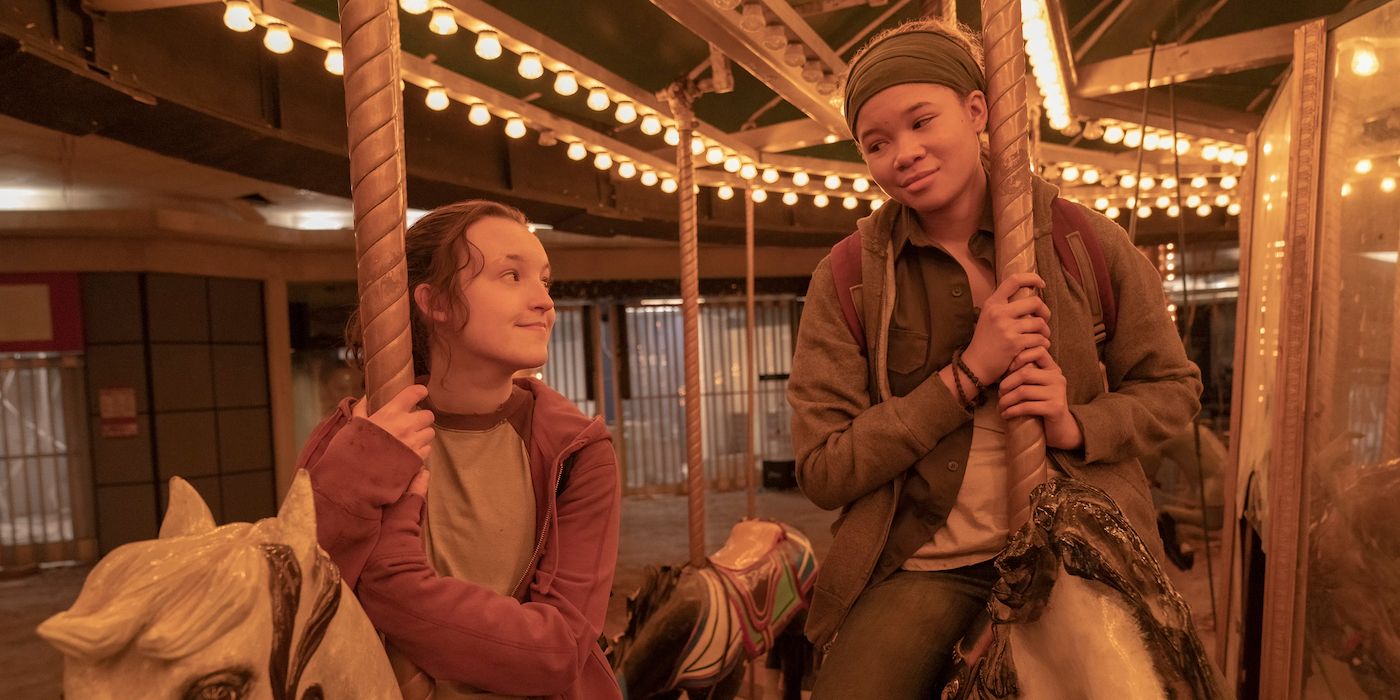
There’s a reason why Episode 3 is such an acclaimed episode of The Last of Us. Yes, it has fantastic performances and direction from Peter Hoar, but it addresses so many central themes of the show. Early in the episode, while hunting for supplies in a basement, Ellie finds an infected trapped under rubble. It’s at this moment that Ellie feels powerful, crouching down next to the infected and slowly slicing her knife across its forehead, revealing the fungus growing within before aggressively stabbing to kill. After watching the entire series, it becomes clear that this scene is not merely Ellie experimenting.
Episode 7, titled "Left Behind," showcases a younger Ellie sneaking out from FEDRA facilities with her best friend Riley, portrayed confidently by Storm Reid. It’s established early in the episode after a conflict with grunt-in-training Bethany (Ruby Lybbert) that Riley usually fights for Ellie, protecting her against bullies and the grunt-like characters which inhabit FEDRA facilities. Throughout the story, the subtext of their relationship continues to deepen as they embark on an exciting yet heartbreaking coming-of-age adventure throughout an abandoned mall. With a clear romantic chemistry between them, the heartbreak of them both being bitten by infected, only for Ellie to survive, is all the more gut-wrenching. Ellie lost her protector until Joel came along, a man who within a couple of hours beat a soldier to death right in front of her.
Returning to Episode 3’s basement scene with the context of "Left Behind" in mind, it becomes clear that Ellie’s use of violence comes from an emotional place. She is taking out all the pain and suffering from not being able to save Riley, just as Joel turned his pain from the loss of Sarah into violence against the soldier. Over the course of the first season, Ellie’s relationship with violence only begins to deepen.
Violence Takes Even More Control of Ellie
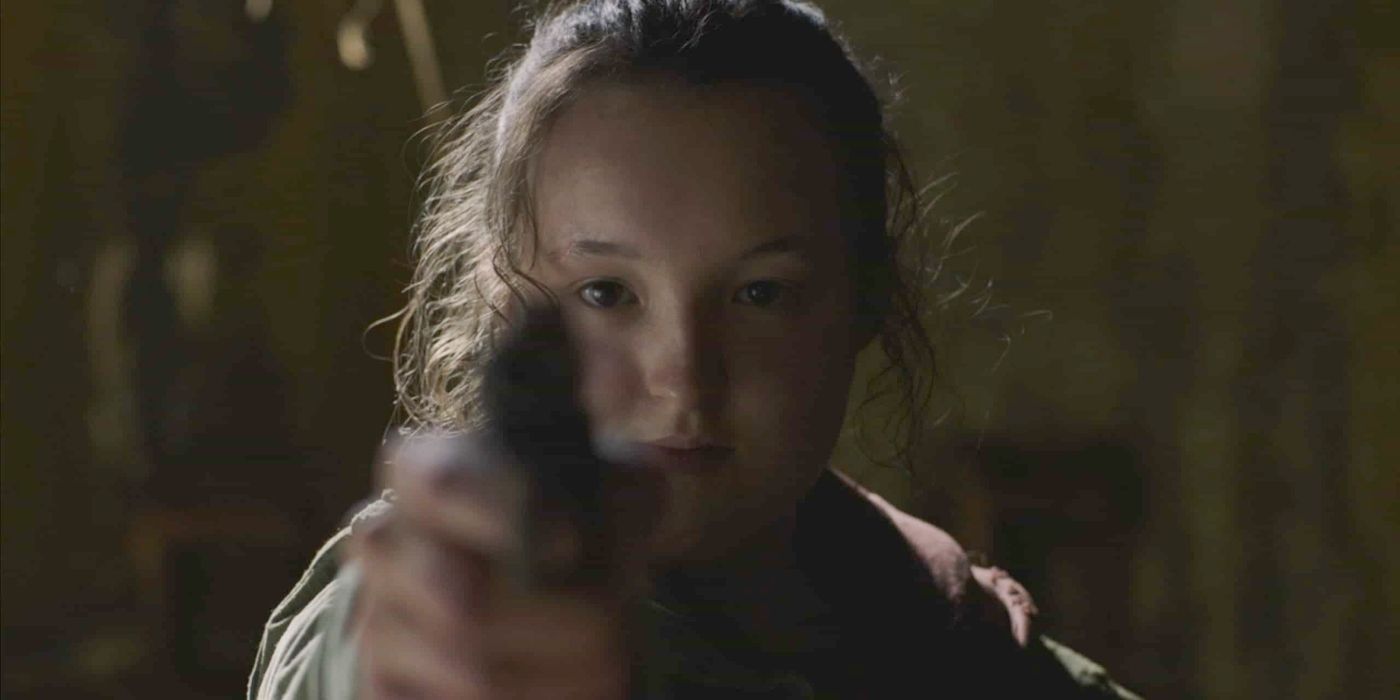
Over the next five episodes, Ellie experiences more acts of violence — from an ultra-infected bloater tearing people apart, to the tragic fate of brothers Sam (Lamar Johnson) and Henry (Keivonn Woodard). A notable moment takes place after an ambush in Kansas City, where Ellie is forced to shoot a man to save Joel’s life. Whilst her shot does not instantly kill their attacker, he is left begging for Joel’s mercy, who quickly tells Ellie to move out of sight of the victim. Following this, we hear the sound of Joel killing the man with his own knife, an extremely violent act that weighs heavily on Ellie’s conscience. Later in the same episode, Joel even teaches Ellie how to correctly hold a gun, quite literally passing down his relationship with violence to her. Despite these actions coming from an intention to protect Ellie, Joel’s actions are beginning to completely strip Ellie of her innocence. It’s part of the conflict of the show and rears its head in the season finale.
Episode 8, titled "When We Are in Need," sees the emotional climax of Ellie’s relationship with violence. Coming face-to-face with creepy cannibal David (Scott Shepherd), Ellie has a violent outburst, killing him. However, it’s not the kill that’s the problem; after all, David had sent men to kill Joel and was about to kill her. Ellie grabs a machete, slices him, and then proceeds to stab him over and over again, screaming as though all the pain of her past has surfaced. It’s the loss of Riley, Tess, Sam, Henry, and anyone else who died protecting her being brought to the surface. She loses control, using violence to vent her emotions and losing her innocence in the process.
Ellie Is Changed Forever by Her Relationship With Joel
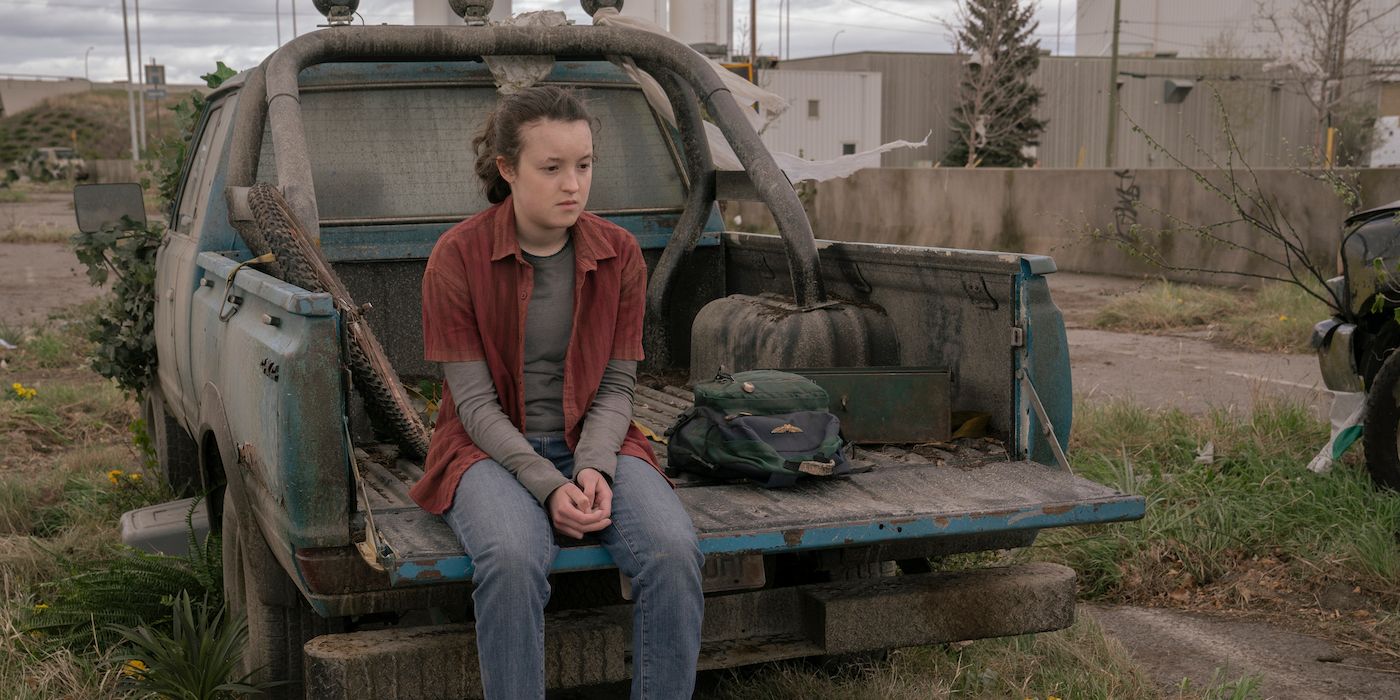
Whilst the finale, “Look for the Light,” is centered around Joel and his need to protect Ellie, we get a glimpse as to where Ellie’s arc is heading. Clearly distraught by the previous episode’s events, Ellie is silent, struggling to converse with Joel as he tries desperately to distract her. When opening up and talking about all those who have died along the way, Ellie states “it can’t be for nothing,” a sentence that stresses the importance of her helping the Fireflies find a cure. Looking deeper, this also speaks to everything she’s been through. No longer an ordinary child and now forced into a violent world, Ellie will never be the same.
After Joel saves her from the Fireflies in one of the most morally conflicting acts in fictional history, Ellie comes face-to-face with a harsh reality: it all was for nothing. While not knowing exactly what happened at the hospital, Ellie is smart enough to understand that Joel is lying to her, despite her plea for him to tell her the truth. Not only did countless people die in the process, but her relationship with Joel is changed forever. For him to lie to her at this level suggests that whatever happened was horrific, causing Ellie to understand that their protection of each other and relationship with violence has gone too far. This new rift between them is hidden within layers of subtext in the episode's final scene, closing out with the subtle but exceptional line: “Okay.”
The Last of Us sends Joel and Ellie on a gripping journey across the country. The two characters begin to care deeply for each other, but throughout the show, it becomes clear that their violent actions will have violent consequences, a theme that will undoubtedly be present in Season 2. With countless deaths along the way, the superbly-written series consistently asks us, “how far would you go to protect those that you love?”
